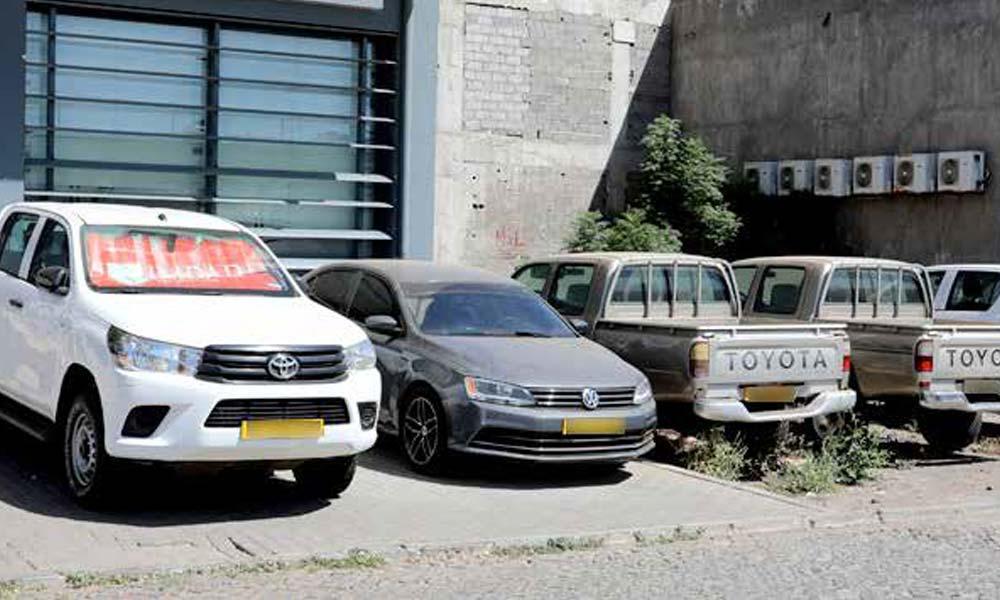Africa-Press – Cape verde. This time, it’s for real, says the head of State Heritage on the misuse of State vehicles. Francisco Moreira points out that the member of the Government no longer has the prerogative to authorize his subordinates to make personal use of State vehicles, as has been happening. The watchword is rigor in the execution of the law.
The new law on the use of the State’s car park, the famous yellow plates, came into force on 27 February. As this was not the first attempt to discipline the use of these public assets, several public leaders and managers were convinced that nothing new had happened with the new law.
That is why the General Directorate of State Heritage and Public Procurement (DGPECP) decided, first, to grant a two-day tolerance, and then to ensure the effective implementation of the decree-law that establishes the legal regime for managing the fleet of vehicles in the Francisco Moreira, head of the DGPECP, highlights the importance of the diploma which,
in his view, allows “moralizing” and making “better use” of State vehicles, an old problem like the State of Cape Verde.
To this end, the DGPECP has already met with the National Police, in order to define strategies and mechanisms for effective monitoring of the Law. “We are going to tighten up and carry out strict control, as taxpayers cannot bear the high costs in relation to State vehicles”, he told A NAÇÃO. “There have been complaints and dissatisfaction, but we are going to be strict in complying with the law”.
So much so that, at the end of the working day, no later than 8 pm, State vehicles are now parked at the Government Palace, in the vicinity of ministries, public institutes, State companies and/or regulatory agencies and not at the door of their holders or drivers, as it used to happen.
cost rationalization
In the preamble to Decree-Law o 10/2023, which establishes the legal regime for managing the State vehicle fleet, the Government recognizes that the State vehicle fleet (PVE) “has grown a lot” over the years and its adequate management is now an important priority.
Also in accordance with the said diploma, a legal regime for the centralized management of the PVE was also enshrined, which is based not only on the principle of centralizing purchases and managing the vehicle fleet, but also on the principles of onerous use of vehicles, responsibility of user entities, control of budgetary expenditure and
preference for the composition of a more environmentally sustainable car fleet.
“It also reinforces the mechanisms for collecting and processing up-to-date information, in order to provide management, planning and control indicators compatible with a modern and effective Public Administration”, he underlines.
Who is entitled to function vehicles
The following entities are entitled to use official vehicles:
– President of the Republic;
– President of the National Assembly;
– Prime Minister;
– President of the Constitutional Court;
– President of the Supreme Court of Justice;
– Deputy Prime Ministers;
– Former Presidents of the Republic;
– Ministers;
– Vice-Presidents of the National Assembly;
– Secretaries of State;
– President of the Court of Auditors;
– Attorney General of the Republic;
– President of the Superior Council of the Judiciary;
– Ombudsman.
And also:
– Leader of the Parliamentary Group;
– Chief of Staff of the Armed Forces;
– Chief of Staff of the Presidency of the Republic;
– Judges of the Constitutional Court;
– Judges of the Supreme Court of Justice;
– Deputy Attorney General of the Republic;
– Deputy Attorneys General;
– Judges of the Courts of Appeal;
– General Secretary of the National Assembly;
– Secretary General of the Government;
– National Director of the National Police;
– National Director of the Judiciary Police;
– President of the National Electoral Commission;
– President of the National Commission on Human Rights and Citizenship;
– Circle Prosecutors;
– General Director of the Information Services of the Republic;
– Head of the Military House of the Presidency of the Republic;
– Vice-President of the Superior Council of the Judiciary;
– Vice-President of the Superior Council of the Public Ministry;
– President of the National Civil Protection Service;
– President of the National Data Protection Commission;
– Superior Judicial Inspector;
– Director General of the Financial Information Unit.
The remaining cases
With the exception of the entities indicated above, article 12 of the new regulation makes it clear that State vehicles can only be used for public service purposes.
Thus, drivers assigned to the staff of the respective services are authorized to drive vehicles for personal use.
Managers and equivalent staff, as well as special staff, are provided with transportation to and from the workplace by the respective services.
The same diploma stipulates that after 8 pm, on weekends and national or municipal holidays, and during periods of time off, vehicles allocated to the PVE must be parked in appropriate places and indicated by the entity using the vehicle of the State.
This list excludes vehicles assigned to public media, hospitals and health stations and essential services in production, distribution, maintenance, replacement of electricity, water, communications and internet, when on a mission of service.
Fine up to 70 contos
The improper or abusive use of State vehicles, in disrespect for the conditions of use established by law, “constitutes a serious disciplinary infraction, provided for and punished under the terms of the law, without prejudice to the civil, criminal and misdemeanor liability that may apply to the case, under the terms and in accordance with the applicable legal provisions”.
Offenses are punishable by fines ranging from 10,000$00 up to a maximum of 70,000$00.
For More News And Analysis About Cape verde Follow Africa-Press






